Fleurs du Mal Magazine


Or see the index
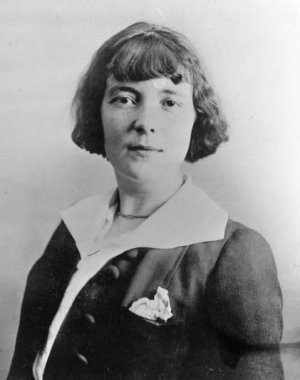
Katherine Mansfield
(1888-1923)
A Little Boy’s Dream
To and fro, to and fro
In my little boat I go
Sailing far across the sea
All alone, just little me.
And the sea is big and strong
And the journey very long.
To and fro, to and fro
In my little boat I go.
Sea and sky, sea and sky,
Quietly on the deck I lie,
Having just a little rest.
I have really done my best
In an awful pirate fight,
But we captured them all right.
Sea and sky, sea and sky,
Quietly on the deck I lie–
Far away, far away
From my home and from my play,
On a journey without end
Only with the sea for friend
And the fishes in the sea.
But they swim away from me
Far away, far away
From my home and from my play.
Then he cried “O Mother dear.”
And he woke and sat upright,
They were in the rocking chair,
Mother’s arms around him–tight.
Katherine Mansfield poetry
fleursdumal.nl magazine
More in: Archive M-N, Mansfield, Katherine
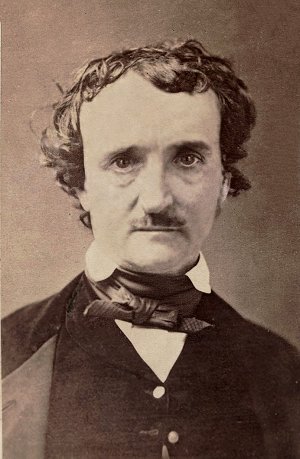
Edgar Allan Poe
(1809 – 1849)
Evening Star
‘Twas noontide of summer,
And mid-time of night;
And stars, in their orbits,
Shone pale, thro’ the light
Of the brighter, cold moon,
‘Mid planets her slaves,
Herself in the Heavens,
Her beam on the waves.
I gazed awhile
On her cold smile;
Too cold- too cold for me-
There pass’d, as a shroud,
A fleecy cloud,
And I turned away to thee,
Proud Evening Star,
In thy glory afar,
And dearer thy beam shall be;
For joy to my heart
Is the proud part
Thou bearest in Heaven at night,
And more I admire
Thy distant fire,
Than that colder, lowly light.
Edgar Allan Poe poetry
fleursdumal.nl magazine
More in: Archive O-P, Poe, Edgar Allan

Dante Alighieri
(1265-1321)
Death, always cruel
Eath, always cruel, Pity’s foe in chief,
Mother who brought forth grief,
Merciless judgment and without appeal!
Since thou alone hast made my heart to feel
This sadness and unweal,
My tongue upbraideth thee without relief.
And now (for I must rid thy name of ruth)
Behoves me speak the truth
Touching thy cruelty and wickedness:
Not that they be not known; but ne’ertheless
I would give hate more stress
With them that feed on love in very sooth.
Out of this world thou hast driven courtesy,
And virtue, dearly prized in womanhood;
And out of youth’s gay mood
The lovely lightness is quite gone through thee.
Whom now I mourn, no man shall learn from me
Save by the measure of these praises given.
Whoso deserves not Heaven
May never hope to have her company.
“Death, always cruel” was translated into English by D.G. Rossetti (1828-1882)
Dante Alighieri poetry
fleursdumal.nl magazine
More in: Archive C-D, Dante Alighieri, Rossetti, Dante Gabriel

Elizabeth Barrett Browning
(1806 – 1861)
The Cry Of The Children
Do ye hear the children weeping, O my brothers,
Ere the sorrow comes with years?
They are leaning their young heads against their mothers—
And that cannot stop their tears.
The young lambs are bleating in the meadows;
The young birds are chirping in the nest;
The young fawns are playing with the shadows;
The young flowers are blowing toward the west—
But the young, young children, O my brothers,
They are weeping bitterly!—
They are weeping in the playtime of the others
In the country of the free.
Do you question the young children in the sorrow,
Why their tears are falling so?—
The old man may weep for his to-morrow
Which is lost in Long Ago—
The old tree is leafless in the forest—
The old year is ending in the frost—
The old wound, if stricken, is the sorest—
The old hope is hardest to be lost:
But the young, young children, O my brothers,
Do you ask them why they stand
Weeping sore before the bosoms of their mothers,
In our happy Fatherland?
They look up with their pale and sunken faces,
And their looks are sad to see,
For the man’s grief abhorrent, draws and presses
Down the cheeks of infancy—
“Your old earth,” they say, “is very dreary;”
“Our young feet,” they say, “are very weak!
Few paces have we taken, yet are wearyÑ
Our grave-rest is very far to seek.
Ask the old why they weep, and not the children,
For the outside earth is cold,—
And we young ones stand without, in our bewildering,
And the graves are for the old.
“True,” say the young children, “it may happen
That we die before our time.
Little Alice died last year—the grave is shapen
Like a snowball, in the rime.
We looked into the pit prepared to take her—
Was no room for any work in the close clay:
From the sleep wherein she lieth none will wake her
Crying, ‘Get up, little Alice! it is day.’
If you listen by that grave, in sun and shower,
With your ear down, little Alice never cries!—
Could we see her face, be sure we should not know her,
For the smile has time for growing in her eyes—
And merry go her moments, lulled and stilled in
The shroud, by the kirk-chime!
It is good when it happens,” say the children,
“That we die before our time.”
Alas, alas, the children! they are seeking
Death in life, as best to have!
They are binding up their hearts away from breaking,
With a cerement from the grave.
Go out, children, from the mine and from the city—
Sing out, children, as the little thrushes do—
Pluck your handfuls of the meadow-cowslips pretty—
Laugh aloud, to feel your fingers let them through!
But they answer, “Are your cowslips of the meadows
Like our weeds anear the mine?
Leave us quiet in the dark of the coal-shadows,
From your pleasures fair and fine!
“For oh,” say the children, “we are weary,
And we cannot run or leap—
If we cared for any meadows, it were merely
To drop down in them and sleep.
Our knees tremble sorely in the stooping—
We fall upon our faces, trying to go;
And, underneath our heavy eyelids drooping,
The reddest flower would look as pale as snow.
For, all day, we drag our burden tiring,
Through the coal-dark, underground—
Or, all day, we drive the wheels of iron
In the factories, round and round.
“For, all day, the wheels are droning, turning,—
Their wind comes in our faces,—
Till our hearts turn,—our head, with pulses burning,
And the walls turn in their places—
Turns the sky in the high window blank and reeling—
Turns the long light that droppeth down the wall—
Turn the black flies that crawl along the ceiling—
All are turning, all the day, and we with all.—
And, all day, the iron wheels are droning;
And sometimes we could pray,
‘O ye wheels,’ (breaking out in a mad moaning)
‘Stop! be silent for to-day!’ “
Ay! be silent! Let them hear each other breathing
For a moment, mouth to mouth—
Let them touch each other’s hands, in a fresh wreathing
Of their tender human youth!
Let them feel that this cold metallic motion
Is not all the life God fashions or reveals—
Let them prove their inward souls against the notion
That they live in you, os under you, O wheels!—
Still, all day, the iron wheels go onward,
Grinding life down from its mark;
And the children’s souls, which God is calling sunward,
Spin on blindly in the dark.
Now, tell the poor young children, O my brothers,
To look up to Him and pray—
So the blessed One, who blesseth all the others,
Will bless them another day.
They answer, “Who is God that He should hear us,
White the rushing of the iron wheels is stirred?
When we sob aloud, the human creatures near us
Pass by, hearing not, or answer not a word!
And we hear not (for the wheels in their resounding)
Strangers speaking at the door:
Is it likely God, with angels singing round Him,
Hears our weeping any more?
“Two words, indeed, of praying we remember,
And at midnight’s hour of harm,—
‘Our Father,’ looking upward in the chamber,
We say softly for a charm.
We know no other words except ‘Our Father,’
And we think that, in some pause of angels’ song,
God may pluck them with the silence sweet to gather,
And hold both within His right hand which is strong.
‘Our Father!’ If He heard us, He would surely
(For they call Him good and mild)
Answer, smiling down the steep world very purely,
‘Come and rest with me, my child.’
“But no!” say the children, weeping faster,
“He is speechless as a stone;
And they tell us, of His image is the master
Who commands us to work on.
Go to!” say the children,—“Up in Heaven,
Dark, wheel-like, turning clouds are all we find.
Do not mock us; grief has made us unbelieving—
We look up for God, but tears have made us blind.”
Do you hear the children weeping and disproving,
O my brothers, what ye preach?
For God’s possible is taught by His world’s loving—
And the children doubt of each.
And well may the children weep before you;
They are weary ere they run;
They have never seen the sunshine, nor the glory
Which is brighter than the sun:
They know the grief of man, but not the wisdom;
They sink in man’s despair, without its calm—
Are slaves, without the liberty in Christdom,—
Are martyrs, by the pang without the palm,—
Are worn, as if with age, yet unretrievingly
No dear remembrance keep,—
Are orphans of the earthly love and heavenly:
Let them weep! let them weep!
They look up, with their pale and sunken faces,
And their look is dread to see,
For they mind you of their angels in their places,
With eyes meant for Deity;—
“How long,” they say, “how long, O cruel nation,
Will you stand, to move the world, on a child’s heart,
Stifle down with a mailed heel its palpitation,
And tread onward to your throne amid the mart?
Our blood splashes upward, O our tyrants,
And your purple shows yo}r path;
But the child’s sob curseth deeper in the silence
Than the strong man in his wrath!”
Elizabeth Barrett Browning poetry
fleursdumal.nl magazine
More in: Archive A-B, Barrett Browning, Elizabeth
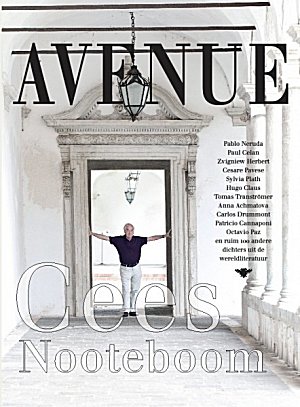
Ter gelegenheid van zijn tachtigste verjaardag verschijnt van romancier, reisschrijver en dichter Cees Nooteboom het boek ‘Avenue’, een bundeling van de vele literaire bijdragen die hij voor dit roemruchte Nederlandse tijdschrift schreef.
VPRO BOEKEN met Cees Nooteboom
zo 10 november 2013
Schrijver Cees Nooteboom had in 1955 een vliegende start met zijn debuutroman Philip en de anderen. Na 1963 reisde hij de hele wereld over en schreef hij lange tijd geen romans. Het reizen was goed te combineren met zijn werk als literair redacteur bij Avenue. De bijdragen die hij gedurende vijftien jaar voor dit roemruchte tijdschrift schreef, zijn nu gebundeld uitgegeven.
Deze aflevering van VPRO BOEKEN wordt a.s. zondag uitgezonden, om 11.20 uur op Nederland 1.
fleursdumal.nl magazine
More in: - Book News, Archive M-N, Art & Literature News, Cees Nooteboom
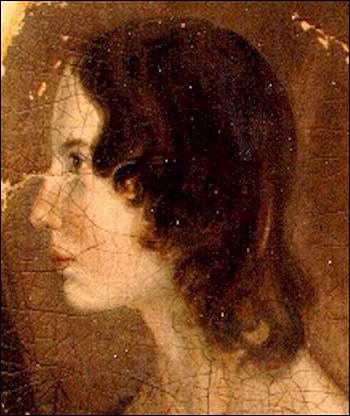
Emily Jane Brontë
(1818-1848)
Remembrance
Cold in the earth–and the deep snow piled above thee,
Far, far, removed, cold in the dreary grave!
Have I forgot, my only Love, to love thee,
Severed at last by Time’s all-severing wave?
Now, when alone, do my thoughts no longer hover
Over the mountains, on that northern shore,
Resting their wings where heath and fern-leaves cover
Thy noble heart for ever, ever more?
Cold in the earth–and fifteen wild Decembers,
From those brown hills, have melted into spring:
Faithful, indeed, is the spirit that remembers
After such years of change and suffering!
Sweet Love of youth, forgive, if I forget thee,
While the world’s tide is bearing me along;
Other desires and other hopes beset me,
Hopes which obscure, but cannot do thee wrong!
No later light has lightened up my heaven,
No second morn has ever shone for me;
All my life’s bliss from thy dear life was given,
All my life’s bliss is in the grave with thee.
But, when the days of golden dreams had perished,
And even Despair was powerless to destroy;
Then did I learn how existence could be cherished,
Strengthened, and fed without the aid of joy.
Then did I check the tears of useless passion–
Weaned my young soul from yearning after thine;
Sternly denied its burning wish to hasten
Down to that tomb already more than mine.
And, even yet, I dare not let it languish,
Dare not indulge in memory’s rapturous pain;
Once drinking deep of that divinest anguish,
How could I seek the empty world again?
.jpg)
Ellis Bell (Emily Jane Brontë) poetry
fleursdumal.nl magazine
More in: - Archive Tombeau de la jeunesse, Anne, Emily & Charlotte Brontë, Archive A-B, Brontë, Anne, Emily & Charlotte
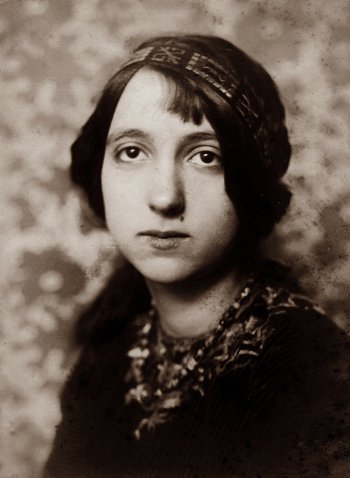
Mireille Havet
(1898-1932)
Connaissance
À la comtesse Jean de Limur
La vie souple, comme une cravache
en plein visage m’a flagellée.
Je m’en vais douce, inoffensive
dans le crépuscule printanier
qui emplit les rues de jeux de billes,
de marelles étoilées.
La lampe
allumée sur le potage,
les faïences,
tel qu’on aurait pu être,
Mais la vie trop souple
de sa fine lanière cingle
les enfants tristes,
et l’âme se plie féline,
domptée
vers la mort qui est sa récompense.
Les enfants du cordonnier
jouent dans la cour
avec des cris qui montent
rappelant des hangars, des faubourgs ;
un arbre bouge tout pointé
de bourgeons verts
et mes larmes sourdes et tenaces
sont prises en moi,
source merveilleuse qui chemine
et s’en va
sous la terre
s’épuiser au long des larmes stériles
de l’amour,
sous la lune grise
qui annonce la belle saison,
les mains enlacées
les lents et balancés
retours à la maison
— la nuit —
au matin l’aubépinier entier s’était fleuri,
et contre moi
comme une bête,
comme un ange terrassé
j’étrangle ma joie d’hier
neuve, insolente
et dont j’aimerais mourir
Ô solitude
magnifique et suprême
que ton dur visage
se mesure bien à mon regard,
face à face comme toujours,
mon âme nue se déploie
au silence des larmes.
Toute ma jeunesse me tire cependant
m’entraîne,
dans l’incroyable
foule humaine
et je reprends la chaîne qui nous lie
à la terre.
Il n’y a rien d’autre,
le pain quotidien
le travail
la jouissance étonnante
du chagrin
qui ressemble à la mer.
Nous mourons d’espoirs,
de nuances douces couleur de lilas
et plus fragiles encore au contact
des doigts
que le bleu effronté des papillons des îles.
Le coup direct ne tue pas si bien
que l’aiguillon secret
qui taquine en silence,
hameçon subtil
glissé dans l’eau
entre les tiges de lotus blancs.
Promenades en bateau,
première étoile
naissante
et qui éclate comme une fleur
à l’horizon des anges,
Vénus au nom de malheur.
J’ai tout vu
le balancement des rames
au fil du courant,
la main douce dans la petite vague
le charme des femmes
leur tendresse navrante
caprice sentimental d’un instant
ont perdu mon âme
qui cherchait leur douceur.
Hamlet, Ophélie, les deux pigeons.
Je poursuis le dérisoire visage de l’amour
au seuil condamnable
au seuil écolier
de mes vingt ans.
Très menteuse et très chère
je vous dédie et je vous signe
ce poème,
vous y retrouverez
tout ce que vous détestez en moi
et même le peu que vous aimiez.
Le jeu est fini
la comédie terminée,
je m’en retourne
front lourd et jambes rompues
vers mon enfance
à la poursuite de la lumière
que vous m’avez empoisonnée.
Ô menteuse
la plus cruelle,
souriez à l’éternelle méchanceté humaine
qui me fit en neuf jours
votre petit arlequin bariolé
et ce soir le pierrot balafré
qui vous quitte
visage blanc camouflé de gifles
dans l’incohérence crépusculaire
et douce
du printemps.
La Revue européenne n°3 (1er mai 1923)
Mireille Havet poetry
fleursdumal.nl magazine
More in: Archive G-H, Havet, Mireille, Mireille Havet
.jpg)
Novalis
(Friedrich von Hardenberg, 1772–1802)
Hymnen an die Nacht 6
Sehnsucht nach dem Tode
Hinunter in der Erde Schooß,
Weg aus des Lichtes Reichen,
Der Schmerzen Wuth und wilder Stoß
Ist froher Abfahrt Zeichen.
Wir kommen in dem engen Kahn
Geschwind am Himmelsufer an.
Gelobt sey uns die ewge Nacht,
Gelobt der ewge Schlummer.
Wohl hat der Tag uns warm gemacht,
Und welk der lange Kummer.
Die Lust der Fremde ging uns aus,
Zum Vater wollen wir nach Haus.
Was sollen wir auf dieser Welt
Mit unsrer Lieb’ und Treue.
Das Alte wird hintangestellt,
Was soll uns dann das Neue.
O! einsam steht und tiefbetrübt,
Wer heiß und fromm die Vorzeit liebt.
Die Vorzeit wo die Sinne licht
In hohen Flammen brannten,
Des Vaters Hand und Angesicht
Die Menschen noch erkannten.
Und hohen Sinns, einfältiglich
Noch mancher seinem Urbild glich.
Die Vorzeit, wo noch blüthenreich
Uralte Stämme prangten,
Und Kinder für das Himmelreich
nach Quaal und Tod verlangten.
Und wenn auch Lust und Leben sprach,
Doch manches Herz für Liebe brach.
Die Vorzeit, wo in Jugendglut
Gott selbst sich kundgegeben
Und frühem Tod in Liebesmuth
Geweiht sein süßes Leben.
Und Angst und Schmerz nicht von sich trieb,
Damit er uns nur theuer blieb.
Mit banger Sehnsucht sehn wir sie
In dunkle Nacht gehüllet,
In dieser Zeitlichkeit wird nie
Der heiße Durst gestillet.
Wir müssen nach der Heymath gehn,
Um diese heilge Zeit zu sehn.
Was hält noch unsre Rückkehr auf,
Die Liebsten ruhn schon lange.
Ihr Grab schließt unsern Lebenslauf,
Nun wird uns weh und bange.
Zu suchen haben wir nichts mehr –
Das Herz ist satt – die Welt ist leer.
Unendlich und geheimni?voll
Durchströmt uns süßer Schauer –
Mir däucht, aus tiefen Fernen scholl
Ein Echo unsrer Trauer.
Die Lieben sehnen sich wohl auch
Und sandten uns der Sehnsucht Hauch.
Hinunter zu der süßen Braut,
Zu Jesus, dem Geliebten –
Getrost, die Abenddämmrung graut
Den Liebenden, Betrübten.
Ein Traum bricht unsre Banden los
Und senkt uns in des Vaters Schooß.
.jpg)
Novalis poetry
fleursdumal.nl magazine
More in: Archive M-N, Novalis, Novalis
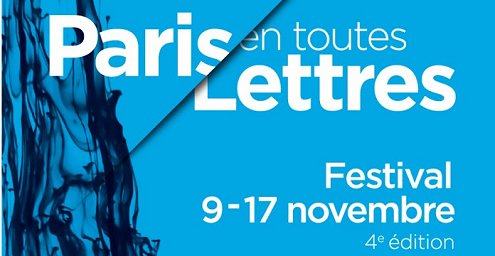
Maison de la Poésie Paris
FESTIVAL PARIS EN TOUTES LETTRES
4ÈME ÉDITION DU 9 AU 17 NOVEMBRE
Paris en toutes lettres devient cette année le festival de la Maison de la Poésie et de son quartier. Un festival littéraire fondé sur les échappées : entre les genres littéraires et les formes artistiques, entre les lieux et la géographie parisienne.
Paris en toutes lettres s’inscrit naturellement dans cette Maison qui revendique l’éclectisme et la liberté, l’hybridation et la fusion entre les genres. Une scène littéraire qui veut à la fois donner la parole aux auteurs, accueillir leurs projets, prêter une attention à l’actualité littéraire et à celle du monde, attiser la curiosité des lecteurs.
Maison de la Poésie
Passage Molière
157, rue Saint-Martin – 75003 Paris
M° Rambuteau – RER Les Halles
# website Maison de la Poésie Paris
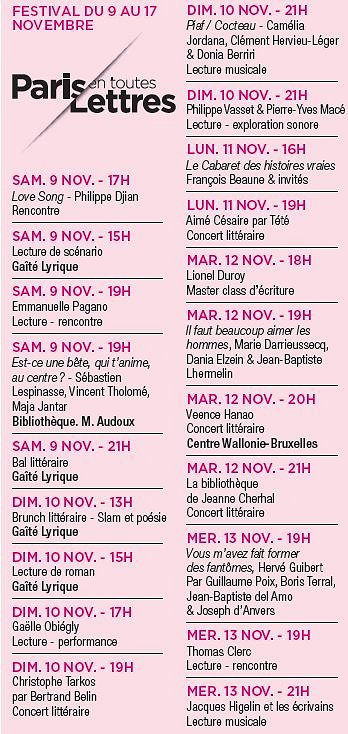
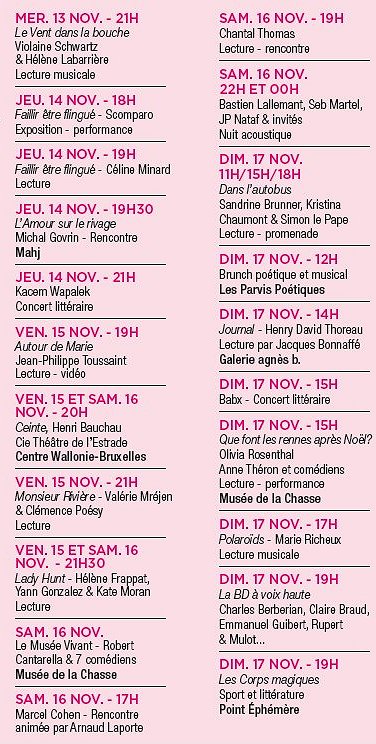
fleursdumal.nl magazine
More in: Art & Literature News, POETRY ARCHIVE
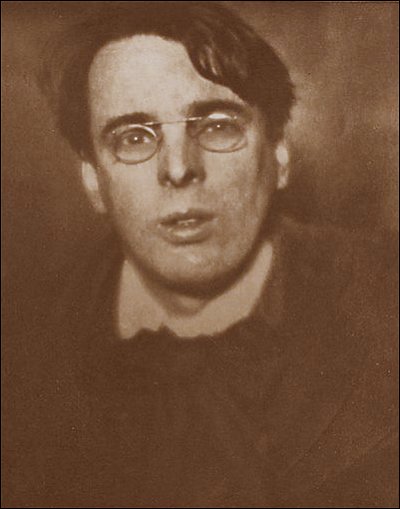
William Butler Yeats
(1865-1939)
PRESENCES
This night has been so strange that it seemed
As if the hair stood up on my head.
From going-down of the sun I have dreamed
That women laughing, or timid or wild,
In rustle of lace or silken stuff,
Climbed up my creaking stair. They had read
All I had rhymed of that monstrous thing
Returned and yet unrequited love.
They stood in the door and stood between
My great wood lectern and the fire
Till I could hear their hearts beating:
One is a harlot, and one a child
That never looked upon man with desire.
And one, it may be, a queen.
William Butler Yeats poetry
fleursdumal.nl magazine
More in: Archive Y-Z, Yeats, William Butler
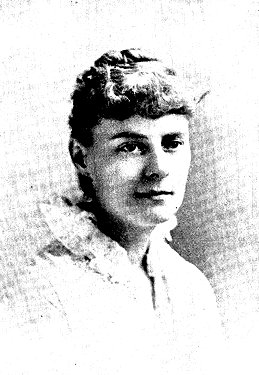
Lizette Woodworth Reese
(1856-1935)
That Day you came
Such special sweetness was about
That day God sent you here,
I knew the lavender was out,
And it was mid of year.
Their common way the great winds blew,
The ships sailed out to sea;
Yet ere that day was spent I knew
Mine own had come to me.
As after song some snatch of tune
Lurks still in grass or bough,
So, somewhat of the end o’ June
Lurks in each weather now.
The young year sets the buds astir,
The old year strips the trees;
But ever in my lavender
I hear the brawling bees.
For me the jasmine buds unfold
And silver daisies star the lea,
The crocus hoards the sunset gold,
And the wild rose breathes for me.
I feel the sap through the bough returning,
I share the skylark’s transport fine,
I know the fountain’s wayward yearning,
I love, and the world is mine!
I love, and thoughts that sometime grieved,
Still well remembered, grieve not me;
From all that darkened and deceived
Upsoars my spirit free.
For soft the hours repeat one story,
Sings the sea one strain divine;
My clouds arise all flushed with glory —
I love, and the world is mine!
Lizette Woodworth Reese poetry
fleursdumal.nl magazine
More in: Archive W-X, CLASSIC POETRY
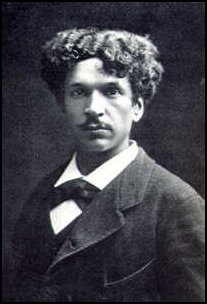
Charles Cros
(1842-1888)
Testament
Si mon âme claire s’éteint
Comme une lampe sans pétrole,
Si mon esprit, en haut, déteint
Comme une guenille folle,
Si je moisis, diamantin,
Entier, sans tache, sans vérole,
Si le bégaiement bête atteint
Ma persuasive parole,
Et si je meurs, soûl, dans un coin
C’est que ma patrie est bien loin
Loin de la France et de la terre.
Ne craignez rien, je ne maudis
Personne. Car un paradis
Matinal, s’ouvre et me fait taire.
Charles Cros poetry
fleursdumal.nl magazine
More in: Archive C-D, Cros, Charles
Thank you for reading Fleurs du Mal - magazine for art & literature